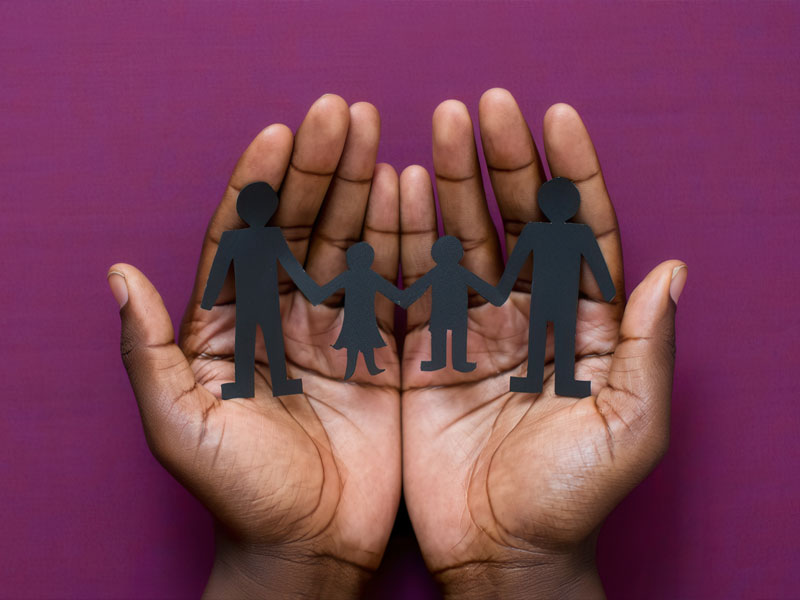
By Rebecca Caswell-Fox, CEO of KidsAid
When a parent is overwhelmed, anxious, or emotionally exhausted, a child often absorbs it too, sometimes without us even noticing.
Giving children the best start in life goes far beyond meeting their basic needs. It means creating a stable, nurturing environment for emotional, social, and cognitive development. At the core of that environment is a critical yet frequently overlooked factor: the mental health of parents and caregivers.
At KidsAid, we’re privileged to support children through some of their most vulnerable moments. Through our work, we’ve learned that when a parent or caregiver is struggling emotionally, it can ripple through the family, quietly affecting how a child feels, behaves, and copes.
A caregiver’s mental health plays a vital role in shaping a child’s sense of safety, connection, and emotional stability.
If we want to support children effectively, we must ask: How can we support parents before they reach a breaking point?
The answer lies in early intervention, accessible mental health services, and a collective effort to break the stigma around emotional struggles.
But support doesn’t just come from professionals or systems – it starts in our homes, schools, and communities. When communities create safe, compassionate spaces for parents to be honest about their mental health, we help prevent isolation and encourage connection. That sense of belonging can be just as important as any clinical service.
Recent findings from the 2025 Safeguarding Pressures Phase 9 report by the Association of Directors of Children’s Services (ADCS) confirm just how urgent this need is.
Parents and carers are facing immense challenges, ranging from anxiety and depression to financial hardship, housing insecurity, and the lingering trauma of the COVID-19 pandemic. These stressors directly impact the home environment and, in turn, children’s emotional and mental wellbeing.
These struggles are not isolated incidents—they reflect a broader societal challenge. Families don’t exist in a vacuum; they’re part of wider communities that can either uplift or overwhelm them. To truly protect children, we must treat support for parents’ mental health not only as a core part of family care and safeguarding, but as a shared community responsibility. When we surround parents with empathy, understanding, and practical support, we strengthen the foundations children grow from.
Many parents feel an immense pressure to “hold it all together,” often suffering in silence. Stigma, fear of judgment, and lack of access to mental health services stop parents from seeking help when they need it most.
We need to shift the conversation. Asking for help is a strength. Supporting your own mental health is one of the most powerful ways to protect your child’s future.
Waiting until families are in crisis not only harms parents, but it also limits our ability to support children effectively. That’s why early mental health intervention is so critical.
To make this possible, we need to:
During the COVID-19 pandemic, KidsAid saw firsthand how deeply parental wellbeing influences a child’s ability to cope and thrive. Families faced unprecedented stress and isolation. In response, we made supporting parents a core part of our mission – offering:
We’ve seen the transformation that’s possible when parents feel emotionally supported.
As one parent shared:
“KidsAid has been incredible. Therapy sessions lifted my mood and brought back the light I thought was lost. I finally feel hopeful. I’ve learned to accept my past and embrace life as it comes. I’m a better parent, and we’re moving forward together.”
We believe in a whole-family approach to child mental health. That means treating caregivers with the same compassion and support we offer children. When parents receive the help they need, they’re more emotionally available, connected, and consistent – qualities that form the foundation of a child’s emotional security.
Supporting parents is essential to protecting children’s long-term development and mental health.
While professional services and expert intervention are vital, supporting parents doesn’t always require formal systems or policies. Often, it starts with simple acts of understanding, listening, and compassion. Something we can all do.
Children don’t need perfect parents. They need caregivers who are present, supported, and emotionally well.
It takes a village – not just to raise a child, but to support the people raising them.
When we show up for parents, we strengthen families. And when families are supported, children thrive.
To learn more, or seek support from our services, visit KidsAid Parents & Families Services.